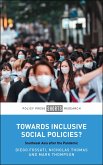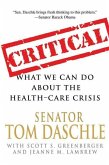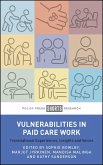Available open access digitally under CC-BY-NC-ND licence.
Health inequality has reached a crisis point. Your income or hometown can have a devastating impact on how well and how long you live. This injustice, exacerbated during the COVID-19 pandemic, continues as the cost of living rises and other sources of inequity grow. What can be done to make things better?
This book, written by the authors behind the award-winning The Unequal Pandemic, explores successful international case studies of governments reducing health inequalities - from the USA and Brazil to Germany and England - stretching over fifty years from the 1960s to the 2000s.
Essential reading for students and scholars of public health and the social sciences, and for health and social care professionals and policy makers, this book demonstrates that reducing health inequalities is possible and provides a roadmap for today's governments to follow.
Health inequality has reached a crisis point. Your income or hometown can have a devastating impact on how well and how long you live. This injustice, exacerbated during the COVID-19 pandemic, continues as the cost of living rises and other sources of inequity grow. What can be done to make things better?
This book, written by the authors behind the award-winning The Unequal Pandemic, explores successful international case studies of governments reducing health inequalities - from the USA and Brazil to Germany and England - stretching over fifty years from the 1960s to the 2000s.
Essential reading for students and scholars of public health and the social sciences, and for health and social care professionals and policy makers, this book demonstrates that reducing health inequalities is possible and provides a roadmap for today's governments to follow.
Dieser Download kann aus rechtlichen Gründen nur mit Rechnungsadresse in A, D ausgeliefert werden.









